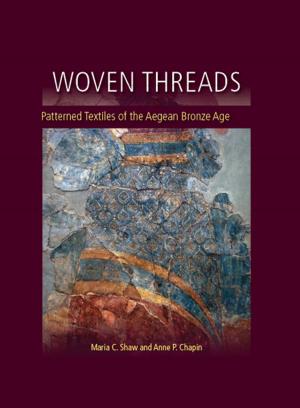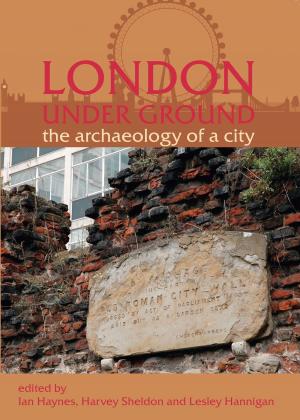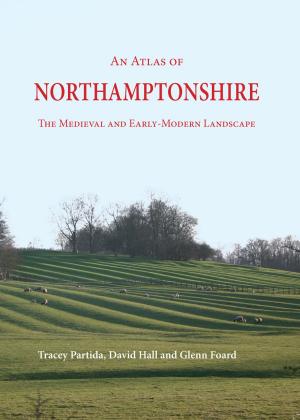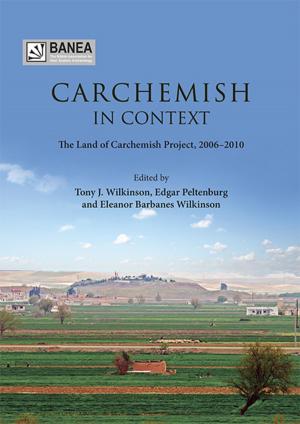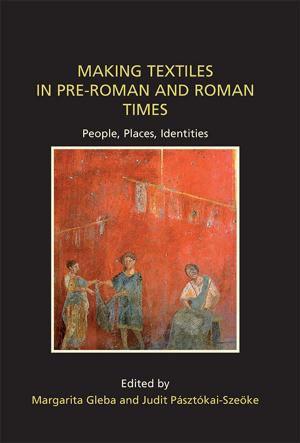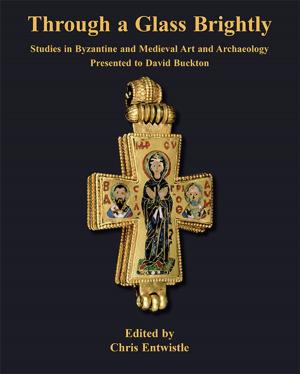Chariots and Other Wheeled Vehicles in Italy Before the Roman Empire
Nonfiction, History, Italy, Ancient History, Rome| Author: | J. H. Crouwel | ISBN: | 9781842179482 |
| Publisher: | Oxbow Books | Publication: | June 30, 2012 |
| Imprint: | Oxbow Books | Language: | English |
| Author: | J. H. Crouwel |
| ISBN: | 9781842179482 |
| Publisher: | Oxbow Books |
| Publication: | June 30, 2012 |
| Imprint: | Oxbow Books |
| Language: | English |
Chariots and Other Wheeled Vehicles in Italy before the Roman Empire presents evidence for transport by wheeled vehicle in Italy before the Roman Imperial period, the beginning of which is often thought to be marked by Augustuss conquest of Egypt in 30 BC. The study begins with a glossary of technical terms and with evidence for roads and the animals that were used in draught. The major part is concerned with the vehicles themselves - two-wheeled chariots and carts and four-wheeled wagons - their construction, the ways in which their draught animals were harnessed and controlled, and the uses to which the equipages were put. A wide range of evidence is drawn upon including figured documents such as architectural terracottas, stone reliefs, vase- and wall paintings; bronze and terracotta models and the remains of actual vehicles, in a few cases accompanied by their harness teams recovered from tombs, primarily from central and northern Italy of the eighth and seventh centuries BC onwards. The concluding chapter looks at the history of wheeled vehicles in Italy before the Roman Imperial period. It traces local, Italic characteristics and possible foreign influences, and assesses the relative economic and social importance of the different kinds of wheeled vehicles and of other means of land transport - by pack and riding animals. In appendices the vehicles depicted in so-called Situla Art and the 'Celtic chariot' are discussed. Lavishly illustrated with over 170 plates and figures, this book is important for the history of transport, technology and draught.
Chariots and Other Wheeled Vehicles in Italy before the Roman Empire presents evidence for transport by wheeled vehicle in Italy before the Roman Imperial period, the beginning of which is often thought to be marked by Augustuss conquest of Egypt in 30 BC. The study begins with a glossary of technical terms and with evidence for roads and the animals that were used in draught. The major part is concerned with the vehicles themselves - two-wheeled chariots and carts and four-wheeled wagons - their construction, the ways in which their draught animals were harnessed and controlled, and the uses to which the equipages were put. A wide range of evidence is drawn upon including figured documents such as architectural terracottas, stone reliefs, vase- and wall paintings; bronze and terracotta models and the remains of actual vehicles, in a few cases accompanied by their harness teams recovered from tombs, primarily from central and northern Italy of the eighth and seventh centuries BC onwards. The concluding chapter looks at the history of wheeled vehicles in Italy before the Roman Imperial period. It traces local, Italic characteristics and possible foreign influences, and assesses the relative economic and social importance of the different kinds of wheeled vehicles and of other means of land transport - by pack and riding animals. In appendices the vehicles depicted in so-called Situla Art and the 'Celtic chariot' are discussed. Lavishly illustrated with over 170 plates and figures, this book is important for the history of transport, technology and draught.






